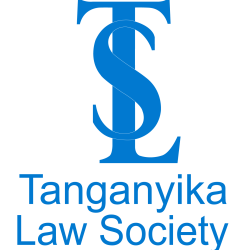TLS vision and mandate determine its Theory of Change (ToC). The nature of TLS given by its statutory objectives requires that TLS balances its modus operandi in order to be in a position to effectively discharge its mandate and realize its vision.
As a statutory professional membership body, TLS is always faced with the temptation of being an introvert institution. However, the setting and context through which TLS operates would be suicidal if TLS would fall in a trap of becoming an absolute inward-looking – i.e. only taking care of its Members’ welfare rather than striving to assert its relevance to Tanzanian society i.e. to both duty bearers and rights holders.
TLS, therefore, believes that its survival and sustainability will only be guaranteed if the rights holders and duty bearers will always see the value added by TLS, its relevance, and its contribution to the juridical, socio-economic, and political development in Tanzania.
This means that TLS will first position itself in a manner that will ensure enhancement of its internal systems and structures; smart and strategic resource mobilization, and improvement of its human resource competence and financial soundness in order to first and foremost take care of its Member’s welfare and empower the members with relevant skills and expertise that will enable them to make strategic and meaningful interventions
to issues (as the case may be) in relation to duty bearers and rights holders. In this regard, the TLS has adopted a systemic devolution by decentralized which will see a deepening of TLS presence in the chapters and most of its intervention will be implementable from TLS chapters countrywide. These chapters will be clustered in zones in order to enhance coordination.3 TLS shall formulate and implement a devolution/decentralization policy which will be gazetted and become binding to TLS in order to preserve the integrity of TLS
As a complete entity hence mitigating the risks of secession or disintegration of TLS into several organisations based on its chapters and zones. As a result, TLS activities will be issued at stake. This approach will enable the rights holders (having been empowered by TLS) to sustainably demand for their rights from the duty bearers.
For that case, TLS will essentially invoke the rights based approach to development as both its core theory of change and a sustainability/survival strategy. It will have a fully participatory approach in engaging with all the Key Stakeholders in all activities and promote a more harmonized and aligned manner of working to achieve its set objectives.
The diagram below illustrates the TLS theory of change:
TLS’ theory of change is informed and shaped by both internal and external contexts. TLS is not an NGO but a statutory membership professional body that has unique, comparative and competitive statutory role exercising its mandate and responsibilities as provided by its establishing Legislation to promote rule of law, democracy and good governance. TLS is guided by the following theories:
– If TLS is primarily a membership association, therefore it is the membership that owns, decides and drives TLS. For that reason, the quality of TLS members.
ultimately determines the TLS Capacity to be capacity to do and capacity to relate and realization of its vision;
– If TLS’ Vision is to become an independent bar association for a just society, then it must primarily empower its members and strengthen its internal institutional systems, structures and processes;
– If TLS resources are available, increased and diversified, then its ability to deliver professional services and products to all its stakeholders becomes more
sustainable;
– If TLS will map its stakeholders and coordinate its allies, mobilize its supporters, engage the rivals and inform its opponents strategically, then its capacity to relate will be revitalised and base for solidarity becomes strengthened;
– If the members will adequately be empowered and the institution be well
strengthened, then it will enhance both its capacity to empower the rights holders and its ability to effectively engage the duty bearers;
– If TLS through its diverse membership throughout the country, wants to effectively empower the public on their legal rights and responsibilities, then TLS will need to embed & implant devolution and decentralize its powers and interventions to its Chapters making them agents of change and transformation at the grassroots level for social-economic justice;
– If TLS decentralization becomes successful, then level of democracy is increased and the need for empowerment with strengthened coordination of TLS Chapters will be more visible and necessary;
– If TLS wants its Chapters to be effectively coordinated, then clustering of Chapters and formation of TLS Zones will be necessary in order to facilitate and coordinate Chapter activities and bring about an alignment of TLS across the country;
– If TLS through its empowered Chapters will effectively empower the Public, then members of the Public will be able to understand, protect and preserve their rights and duties in a more sustainable way, hence guaranteeing its relevance, recognition and reputation to its Stakeholders;
– Where there are challenges facing rule of law, if TLS has roots and good relations with its wide range of stakeholders, then it will be among the safeguards to TLS;
– If TLS Members are empowered to act professionally, guided by TLS values, then its engagement with State will be meaningful, credible and relevant as it will do the right things in the right way;
– If TLS is doing its right things in the right way it will be a credible and reputable institution in the presence of its Members, Public, Development Partners and the State; and
– Therefore, TLS will be responsive and accountable to fulfil, deliver and discharge its obligations to the concerned Stakeholders in tackling corruption, money laundering, organized crimes and promoting good governance including but not limited to rule of law, access to justice, electoral justice, freedom of expression and association, diversity management, social cohesion, economic justice, etc.

